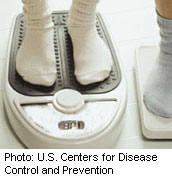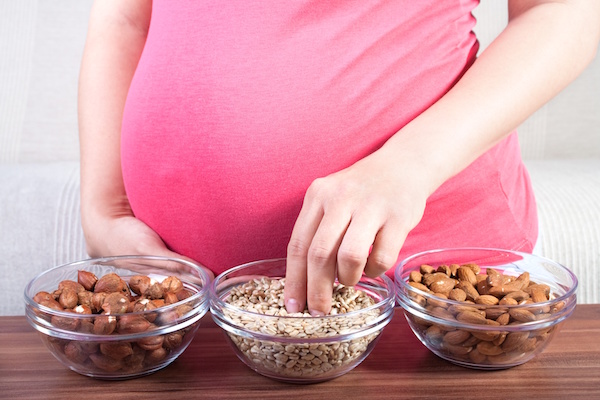
WEDNESDAY, June 4, 2014 (HealthDay News) — Kids face many challenges when their parents divorce, and their struggles often include excessive weight gain, new research suggests.
Boys are especially prone to excess weight in the wake of divorce, according to the study of 3,000 third-graders in Norway.
These boys were 63 percent more likely to be overweight or obese than boys whose parents stayed married, the researchers found. They were also 104 percent more likely to be abdominally obese.
“Knowing which factors are associated with childhood overweight and obesity is crucial, and is the first step toward being able to prevent it,” said lead researcher Anna Biehl, of the Norwegian Institute of Public Health in Oslo.
The researchers cautioned that they found an association between divorce and weight gain, but can’t say divorce is the cause. They also didn’t account for how long parents had been divorced or lifestyle factors such as diet and exercise.
Divorce and childhood obesity are increasingly common in developed nations. In the United States, obesity has more than doubled in children and quadrupled in teenagers in the past 30 years, according to the U.S. Centers for Disease Control and Prevention. Children who are obese are at higher risk for serious health problems such as diabetes and heart disease as they grow older.
From less supervision at home to family stress, experts say there are many possible reasons why kids in divorced families may pack on weight.
“Divorced families sometimes turn to maladaptive behaviors for coping and some of that is emotional eating or decreased activity,” said Sara Rivero-Conil, a child psychologist at Miami Children’s Hospital, who wasn’t involved in the study.
Single parents might feel too pressed for time to cook nutritious meals. “Some may resort to unhealthy foods because they are quicker [to prepare],” she said. “Or a parent who has the kids on a weekend may want to indulge them.”
Boys could be under extra stress as they try to take on the role of the “man in the house,” she added. “We see that when mom has full or shared custody,” Rivero-Conil said.
It helps to keep to a normal routine during and after a divorce and to maintain a healthy environment, including diet and exercise, Rivero-Conil said.
Also, if you eat together, your kids are less likely to be obese, she said. “Take that 30 minutes to have breakfast or dinner with your children to show them what healthy eating is like,” she added.
Dr. David Katz, director of the Yale University Prevention Research Center in New Haven, Conn., thinks the risk of weight gain after divorce is one more piece of the obesity epidemic.
“For the majority of people living in the modern world — adults and children alike — getting fat is easy, and remaining lean is hard,” Katz said.
Divorce may make gaining weight even easier, especially for boys, he said.
“Divorce might reduce the hours of parental supervision,” said Katz. “It might introduce severe stress. It might result in financial hardship. It might shift attention away from health and food choice. It might invite more emotional eating by affected adults as well as children. These are just a few likely mechanisms.”
Divorce likely compounds increasingly widespread vulnerabilities to obesity, he said.
“Perhaps specific attention to the mechanisms of weight gain after divorce may be warranted, so that those affected are empowered to resist,” Katz said.
“But probably more important is the work required to turn the tide of pandemic obesity overall, by empowering families to eat well and be active as a matter of routine,” he added.
For the study, published online June 4 in BMJ Open, Biehl’s team collected data on boys and girls in 127 schools across Norway. These 8- and 9-year-old children were part of the 2010 Norwegian Child Growth Study.
The researchers found that 19 percent of the children were overweight or obese and nearly 9 percent were abdominally obese.
Overall, children of divorced parents were 54 percent more likely to be overweight or obese, and 89 percent more likely to have abdominal obesity compared to children whose parents stayed married, the study found.
The difference was especially apparent for boys. A similar weight pattern was seen for daughters of divorce, but the researchers said it was not statistically significant.
More information
For more about overweight kids, visit the U.S. National Institute of Diabetes and Digestive and Kidney Diseases.
Copyright © 2026 HealthDay. All rights reserved.

